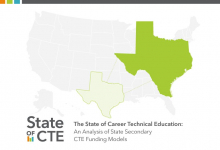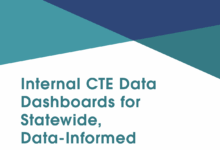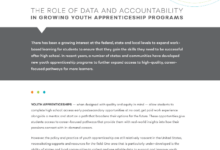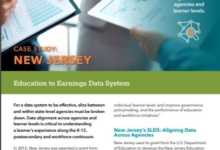For data to be trusted, policies and protocols must be in place to ensure consistent collection of reliable, valid and complete career readiness data. States can establish universal definitions and automated processes to collect and interpret data and work with practitioners and the public to foster an understanding of data elements to build trust in the data. This case study examines how state leaders in Texas have developed statewide programs of study and automated identification of Career Technical Education (CTE) learners that have made data collection and reporting more efficient and accurate.
This case study is part a series of case studies to support the Advance CTE Career Readiness Data Quality and Use Policy Benchmark Tool.







